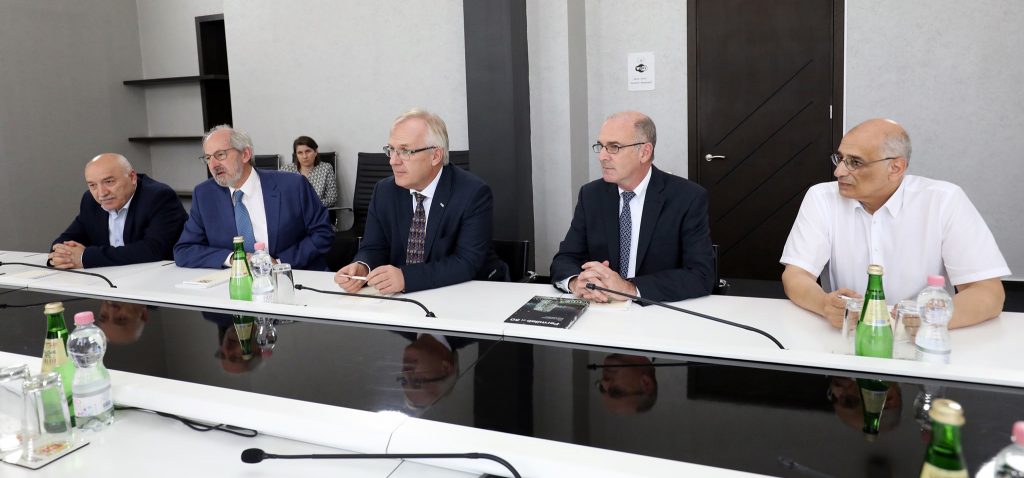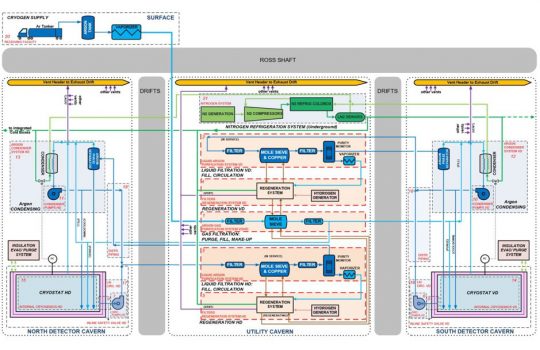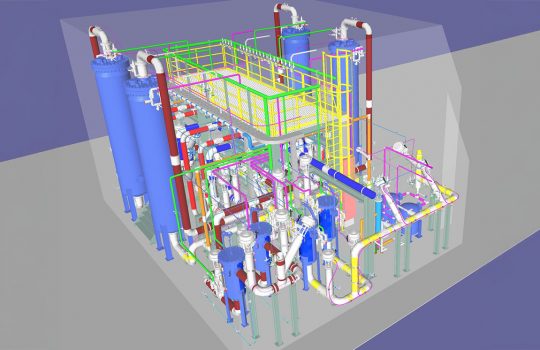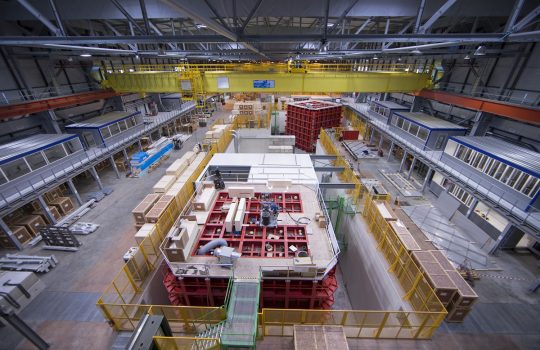As spokespersons for the international Deep Underground Neutrino Experiment, we were privileged to meet in October with a delegation in the country of Georgia to discuss a possible agreement between the DUNE collaboration and Georgian Technical University.
DUNE is an international experiment hosted by the U.S. Department of Energy’s Fermilab and is the largest particle physics project in the United States. DUNE researchers will study ubiquitous yet elusive particles called neutrinos, which have the potential to unlock mysteries about the evolution of the universe.
The two of us and DUNE Institutional Board Chair Bob Wilson of Colorado State University discussed potential contributions that scientists and engineers in Georgia could make to the experiment. Georgian Technical University scientists joined the DUNE collaboration in May. The collaboration now comprises more than 1,000 scientists from over 180 institutions in 30-plus countries.

From left: Georgian Technical University Professor Zviadi Tsamalaidze, DUNE Institutional Board Chair Bob Wilson of Colorado State University, DUNE spokesperson Stefan Söldner-Rembold of the University of Manchester, DUNE spokesperson Ed Blucher of the University of Chicago and Georgian Technical University Professor Arsen Khvedelidze meet in October to discuss possible agreement between the DUNE collaboration and Georgian Technical University.
Georgian institutions are active in the world of high-energy physics experiments, collaborating in the ATLAS and CMS experiments at the European laboratory CERN and in the COMET experiment at the Japanese laboratory KEK.
The meeting focused on ways scientists from Georgian Technical University, led by Zviadi Tsamalaidze, could contribute hardware for the DUNE near detector — a particle detector to be located on the Fermilab site. The discussion comes at a time of increased international interest in the near detector, a project that presents a rare opportunity to conduct cutting-edge research on detector technology from design to construction.
The DUNE near detector will feature state-of-the-art technologies to probe the world’s most intense neutrino beam and make precision measurements as neutrinos travel through the detector on their 1,300-kilometer journey to the DUNE far detectors in South Dakota. The DUNE collaboration held a near detector planning workshop at the DESY laboratory in Hamburg, Germany, at the end of October.
In partnering with DUNE, Georgian Technical University would become the newest in a growing number of institutions contributing to the detector of the next big neutrino experiment.
This work is supported by the DOE Office of Science.
Ed Blucher of the University of Chicago and Stefan Söldner-Rembold of the University of Manchester are the DUNE spokespersons.



